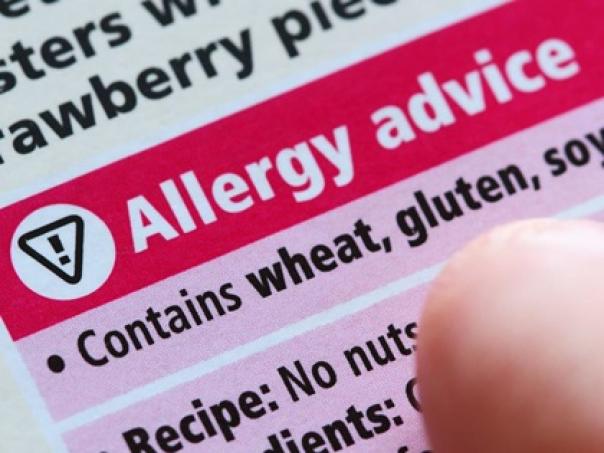
While pre-packaged goods are legally required to highlight on-pack the presence of any allergens, almost half (48%) of Brits are unsure whether or not allergen labels are clear, and a further 15% actively disagreed that this was the case.
Emma Clifford, associate director of food and drink at Mintel, said: “Given the perceived lack of clarity and the dangerous health implications that ambiguous allergen labelling can have on consumers, there is a real need for companies to make the presence of allergens very obvious on labelling.”
The research also found that a UK-wide allergen-labelling system on free-from product packaging appealed to 29% of those who have bought or used free-from products, a figure which increased to 39% of those users who avoid foods and ingredients because of an allergy or intolerance.
Estimated to be worth £837 million in 2018, the UK free-from market has seen ‘stellar’ growth over 2013-18 with sales growing by 133%.
“While current regulations require allergens to be listed in bold on the ingredients list, many companies choose to highlight certain free-from credentials on the front of packaging as well,” Clifford added.
“At the moment this is not regulated and as such, there is no uniformity between the labelling used, which can fuel confusion among consumers, particularly given the huge amount of other product information on packaging.
“There is strong demand for a UK-wide labelling system for allergens which would unify the way in which companies communicate this information on packaging.”
According to Mintel, just under half (48%) of consumers said that they, or someone in their household, avoid at least one food or ingredient, with 16-24-year-olds (61%) the most likely age group to report household avoidance of foods and ingredients.
Only 20% of consumers avoid certain ingredients due to an allergy or intolerance, which is on a par with those who do so as part of a healthy lifestyle (22%).
The research also found that 30% of Brits avoid certain foods or ingredients for other reasons (eg ethical, vegetarian), which increased to 38% of under-25s and 41% of females in this age group.
While dairy is the most commonly avoided food or ingredient (17%), avoidance of dairy has remained unchanged over the last three years.
Soya (16%), fish or shellfish (16%), red meat (15%) and lactose (15%) make up the top five foods and ingredients which Brits avoid.
Clifford said: “Allergies or intolerances aren’t the main reason that consumers are avoiding certain foods or ingredients. Healthy lifestyles and ethical and environmental concerns are also boosting the appeal of these products, with young consumers in particular most likely to be driven by these factors.
“The fact that as many as a quarter of free-from purchasers do not avoid any foods/ingredients reflects that the pool of free-from users is far wider than just those who fully avoid certain ingredients, either due to allergies/intolerances or for other reasons.”
Gluten-free products remained the nation’s most popular type of free-from food with 27% of consumers having purchased or eaten these over six months, despite only 12% of consumers reporting that they or somebody else in their household avoid gluten.
A quarter (26%) of consumers said that free-from diets are good for digestive health, but 44% said that it is hard to know whether they have health benefits for those without an allergy or intolerance.
A further 40% worried that following a free-from diet put you at risk of missing out on certain nutrients.
“The idea that following a free-from diet could potentially put people at risk of missing out on certain nutrients is a concern for a significant number of consumers. Gluten-free products carrying nutrient fortification claims are not widespread in the UK market, suggesting a missed opportunity.
“While highlighting the absence of allergens is vital, spotlighting nutritional credentials is also important for free-from products, particularly to appeal to those opting for these products as part of a healthy lifestyle,” concluded Clifford.